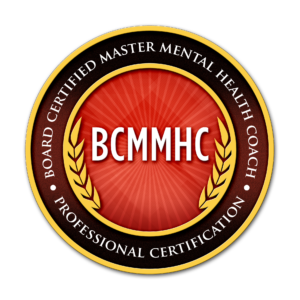The Epidemic of Loneliness in a Connected World
6/14/20243 min read


The Epidemic of Loneliness in a Connected World
In today's hyper-connected world, where social media, instant messaging, and video calls are just a click away, it seems paradoxical that so many people feel profoundly disconnected and lonely. Despite the ease of connecting with others online, a significant number of individuals experience a deep sense of isolation. This loneliness epidemic is a pressing issue that demands our attention and compassion.
The Paradox of Connectivity
The advent of the internet and social media was heralded as a revolution in communication. Platforms like Facebook, Instagram, and Twitter promised to bring people closer, breaking down geographical barriers and fostering global communities. Yet, research shows that social media can often exacerbate feelings of loneliness. A study by the University of Pennsylvania found that limiting social media usage can significantly decrease feelings of loneliness and depression.
This paradox can be understood through the superficial nature of online interactions. Likes, comments, and shares can never replace the depth of face-to-face conversations. Genuine human connection requires more than digital interactions; it demands presence, empathy, and understanding.
The Deep Impact of Loneliness
Loneliness is more than just a feeling; it's a public health crisis. It has been linked to various mental and physical health issues, including depression, anxiety, heart disease, and even premature death. The Bible speaks to the pain of isolation in Psalm 25:16, where David cries out, "Turn to me and be gracious to me, for I am lonely and afflicted" (ESV). This verse captures the profound sorrow and yearning for connection that many people feel today.
Steps to Combat Loneliness
Addressing loneliness requires both personal effort and community support. Here are some actionable steps to help mitigate this epidemic:
Reach Out to Others: Often, a simple act of reaching out can make a significant difference. Call a friend, visit a neighbor, or write a letter. In Hebrews 10:24-25, we are encouraged to "consider how to stir up one another to love and good works, not neglecting to meet together, as is the habit of some, but encouraging one another" (ESV).
Engage in Community Activities: Joining clubs, volunteer groups, or religious communities can foster a sense of belonging. Participating in communal activities provides opportunities to build meaningful relationships and support networks.
Practice Active Listening: When someone shares their feelings, listen with empathy and without judgment. Proverbs 18:13 reminds us, "If one gives an answer before he hears, it is his folly and shame" (ESV). Truly listening to others can help them feel valued and understood.
Limit Social Media Use: Reducing time spent on social media can decrease feelings of loneliness. Instead, focus on engaging in real-life interactions and activities that bring joy and fulfillment.
Seek Professional Help: For those struggling with chronic loneliness, professional counseling can be a valuable resource. Therapists can provide strategies to build connections and improve mental health.
Building a Culture of Connection
Creating a culture that values genuine connection over superficial interaction is essential. The Church and other community organizations can play a pivotal role in this. By fostering environments where people feel safe, heard, and loved, we can help combat the epidemic of loneliness.
1 Thessalonians 5:11 urges us to "encourage one another and build one another up" (ESV). Let us strive to be a source of encouragement and connection in a world that often feels disconnected. By doing so, we can help ourselves and others experience the profound joy and fulfillment that comes from true community.
Conclusion
The epidemic of loneliness in our connected world is a complex issue that requires a multifaceted approach. By reaching out, engaging in community, practicing active listening, limiting social media use, and seeking professional help, we can make strides in combating this pervasive problem. Let us remember the words of Jesus in John 15:12, "This is my commandment, that you love one another as I have loved you" (ESV). Through love, empathy, and genuine connection, we can begin to heal the deep wounds of loneliness in our society.
References:
"Social Media Use and Perceived Social Isolation Among Young Adults in the U.S." University of Pennsylvania, 2017.
"The Association Between Social Media Use and Depressive Symptoms Among U.S. Young Adults." Journal of Social and Clinical Psychology, 2018.
"Loneliness and Social Isolation as Risk Factors for Mortality: A Meta-Analytic Review." Perspectives on Psychological Science, 2015.
"Social Relationships and Health: A Flashpoint for Health Policy." Journal of Health and Social Behavior, 2010.
All Scripture The Holy Bible, English Standard Version. (ESV).









